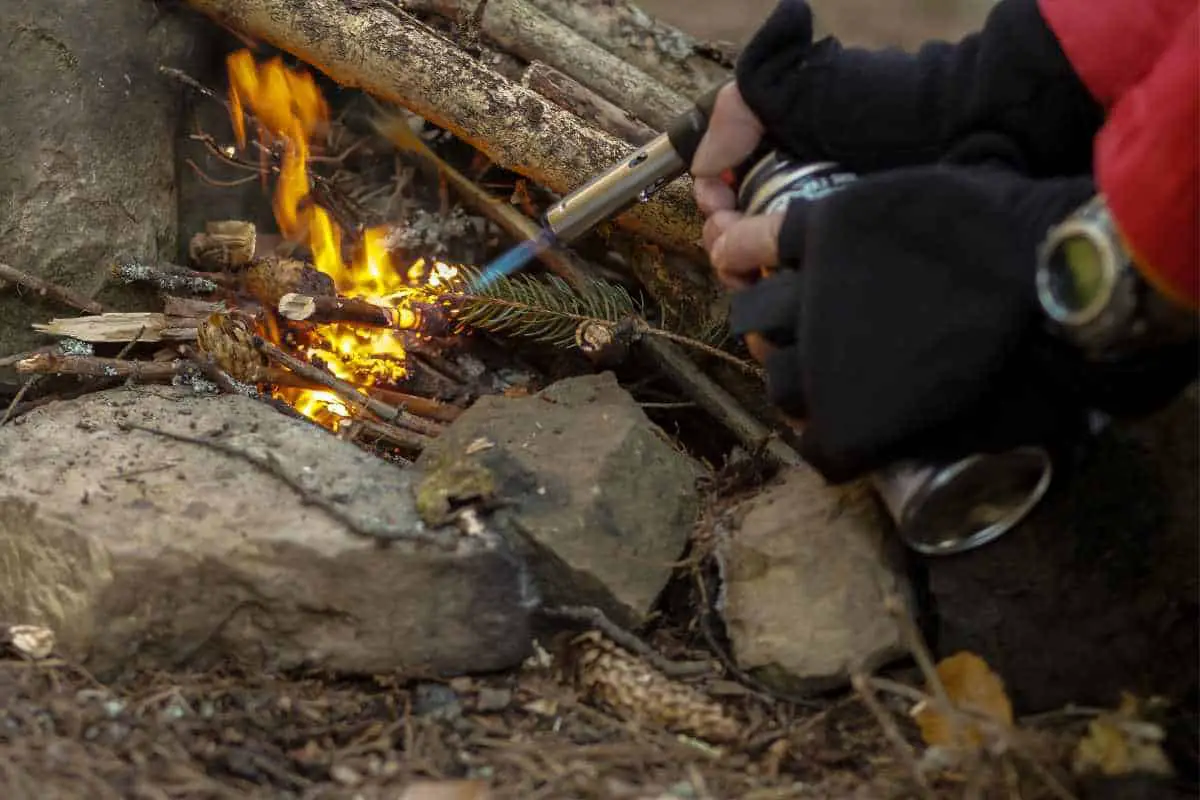Butane cans are commonly used for various purposes, such as camping, cooking, and heating. However, once the canisters are empty or no longer needed, disposing of them can be tricky.
Butane cans are considered hazardous waste and cannot be disposed of in the regular trash. Improper disposal of butane cans can cause harm to the environment and pose a risk to human health.
So, what is the proper way to dispose of butane cans?
The recommended method is to take them to a local recycling center that accepts hazardous waste.
It is important to check with your local recycling center first to ensure that they accept butane cans. If a recycling center is not available in your area, there are other safe and effective ways to dispose of butane cans.
One option is to vent all of the remaining gas in the canister and puncture a hole through the sidewall using a tool, such as a Jetboil Crunchit. This will render the canister safe for disposal in the regular trash.
However, it is important to note that this method should only be done by individuals who are familiar with handling hazardous materials and have the proper tools and equipment.
Why Proper Disposal of Butane Cans is Important
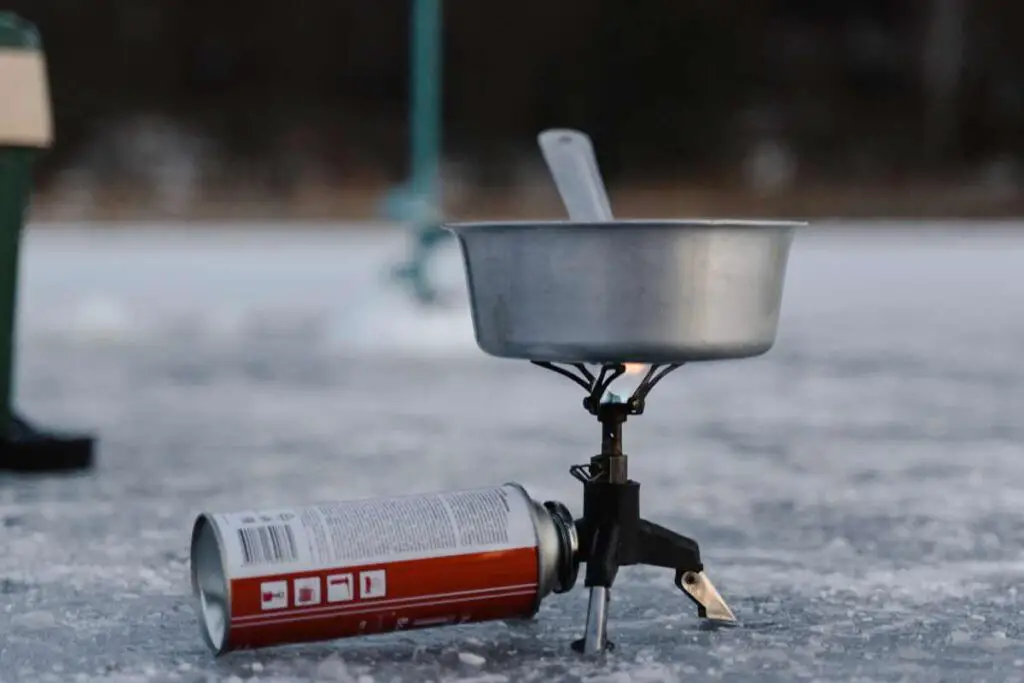
Butane cans are commonly used in households for various purposes such as lighting a grill, camping stove, or torch. However, improper disposal of these cans can have serious environmental and safety consequences.
Here are a few reasons why proper disposal of butane cans is important:
- Environmental Impact: Butane cans are made of metal and can take several years to decompose. When not disposed of properly, they can end up in landfills or littered in the environment. This can lead to soil and water pollution, which can harm plants and animals.
- Safety Concerns: Butane cans contain pressurized gas, which can cause explosions or fires if not handled properly. When disposed of in regular trash, the cans can be punctured, causing the gas to leak and potentially ignite. Additionally, if the cans are not completely empty, they can become a hazard for waste collectors and recycling workers.
- Legal Regulations: In many areas, it is illegal to dispose of hazardous waste, including butane cans, in regular trash. Violating these regulations can result in fines or legal action.
By properly disposing of butane cans, you can help protect the environment, prevent safety hazards, and ensure compliance with legal regulations.
In the next section, we will discuss the different methods of disposing of butane cans safely and responsibly.
How to Prepare Butane Cans for Disposal

When it comes to disposing of butane cans, it is important to take certain precautions to ensure that they are properly handled and do not pose a risk to the environment or public safety.
Here are some steps to follow when preparing butane cans for disposal:
- Make sure the can is completely empty before disposing of it. If there is any remaining gas, it can be dangerous and potentially explosive.
- Remove any plastic caps or attachments from the can before disposing of it. These items are not recyclable and can contaminate the recycling stream.
- Check with your local recycling center or hazardous waste facility to determine if they accept butane cans. Some facilities may have specific requirements for how the cans should be prepared for disposal, such as removing the valve stem or puncturing the can to release any remaining gas.
- If your local recycling center does not accept butane cans, check with the manufacturer or retailer to see if they have a take-back program. Many companies offer recycling programs for their products, including butane cans.
By following these simple steps, you can ensure that your butane cans are disposed of safely and responsibly.
Remember, proper disposal of hazardous materials is important for protecting the environment and public health.
Ways to Dispose of Butane Cans
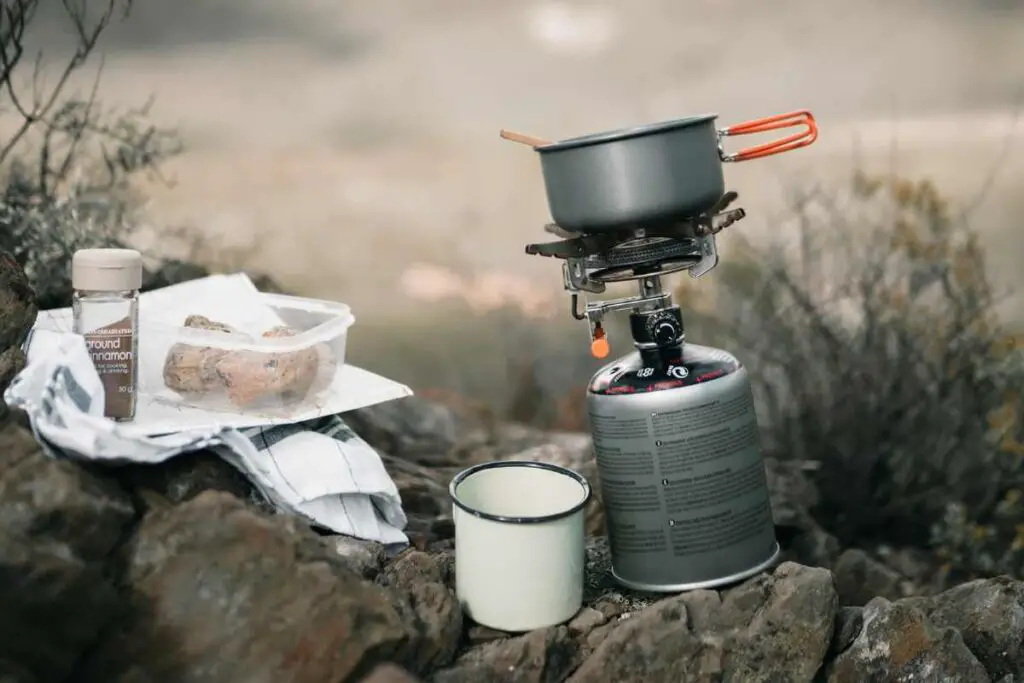
Disposing of butane cans can be tricky, as they are considered hazardous waste and can pose a danger to sanitation workers and the environment if not handled properly.
Here are some safe and legal ways to dispose of your empty butane cans:
- Return to the store: Many stores that sell butane cans also offer a recycling program for empty cans. Check with your local store to see if they have a program in place.
- Local recycling center: Most cities have a hazardous waste disposal center that accepts butane cans. Check with your city or county to find the nearest location.
- Household hazardous waste collection: Some cities offer a curbside collection service for hazardous waste, including butane cans. Check with your city to see if this service is available.
- Manufacturer take-back program: Some manufacturers have a take-back program for their products, including butane cans. Check with the manufacturer to see if they have a program in place.
Remember, never throw away your butane cans in the regular trash or recycling bin.
This can pose a danger to sanitation workers and the environment. Always dispose of them properly to ensure the safety of everyone involved.
Recycling Butane Cans

Recycling butane cans is a great way to reduce waste and protect the environment.
Butane cans are made of steel or aluminum, which are both recyclable materials. Recycling these materials helps to conserve natural resources and reduce greenhouse gas emissions.
The best way to recycle butane cans is to return them to the store where you bought them. Many retail stores offer recycling services for butane cans. In some cases, you may have to pay a small fee for this service.
If you can’t return the butane cans to the store, you can take them to your local recycling center. Make sure to check with your local recycling center to see if they accept butane cans. Some centers may not accept them due to safety concerns.
Before recycling the butane cans, make sure they are empty. To do this, you can burn off the remaining gas by using a lighter or match. Make sure to do this outside and away from any other cans, even if you think they’re empty. Once the can is empty, you can recycle it.
It’s important to note that you should never toss butane cans into the garbage, even if they’re empty. Butane cans are considered hazardous waste and can pose a danger to sanitation workers and the environment if not properly disposed of.
By recycling butane cans, you’re doing your part to protect the environment and conserve natural resources. So, the next time you have an empty butane can, make sure to recycle it properly.
Disposing of Butane Cans in the Trash
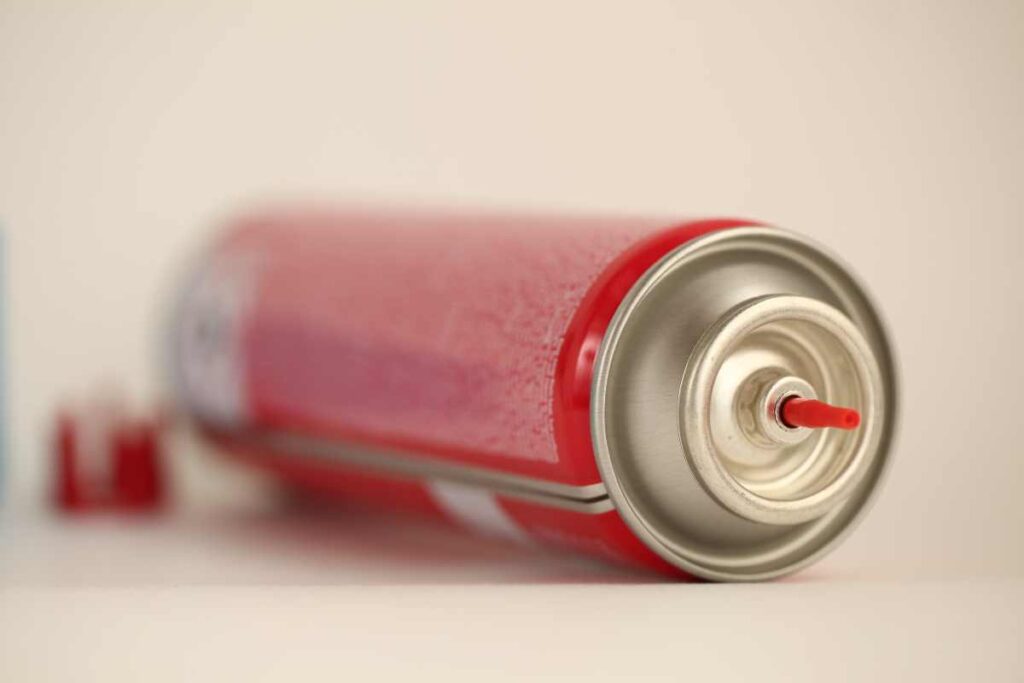
Although it is not the most environmentally friendly option, disposing of butane cans in the trash is sometimes necessary. However, it is important to take certain precautions to ensure safety and reduce the risk of harm to people and the environment.
First, it is important to make sure the can is completely empty. You can do this by using all of the fuel or by puncturing the can and releasing any remaining gas in a well-ventilated area. Once the can is empty, it can be disposed of in the regular trash.
It is important to note that butane cans are considered hazardous waste and should never be incinerated or compacted. This can cause the can to explode and release harmful chemicals into the air.
If you have a large number of butane cans to dispose of, it may be best to take them to a hazardous waste disposal facility. Many communities have these facilities available, and they can properly dispose of the cans in a safe and environmentally friendly manner.
When disposing of butane cans in the trash, it is important to follow all local regulations and guidelines. Some areas may have specific rules regarding the disposal of hazardous waste, and it is important to follow these guidelines to ensure safety and avoid any potential fines or penalties.
Safety Precautions When Disposing of Butane Cans
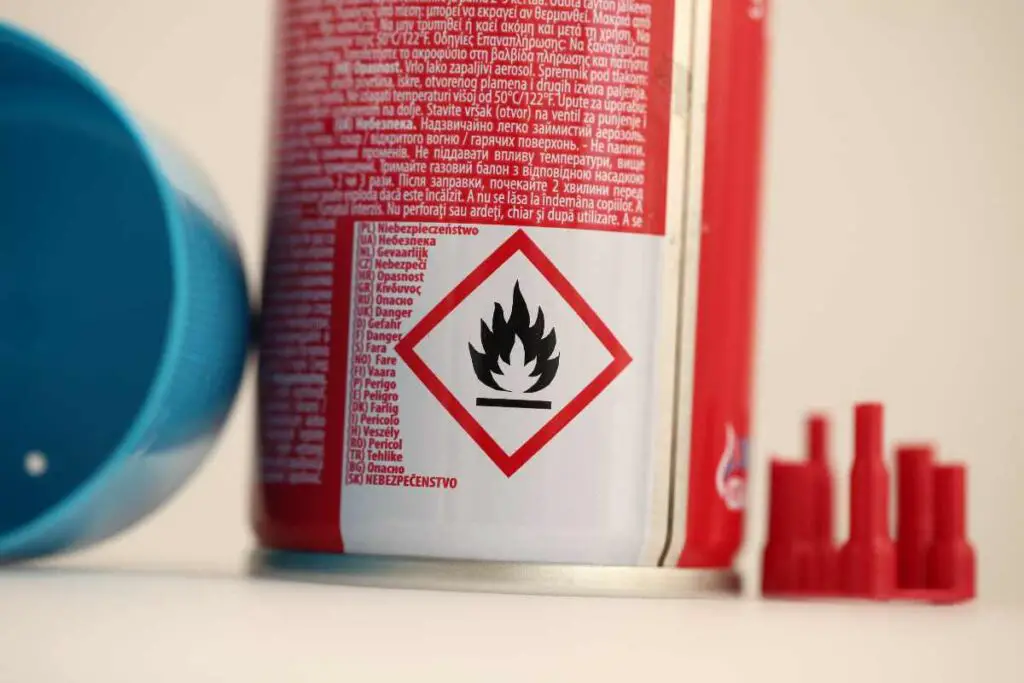
Disposing of butane cans can be hazardous if not done properly.
Here are some safety precautions to keep in mind:
- Make sure the can is completely empty before disposing of it. Any remaining butane can be dangerous if it comes into contact with fire or heat.
- Wear gloves to protect your hands from any sharp edges or residual chemicals.
- Never puncture or crush the can, as this can cause an explosion or fire.
- Do not dispose of butane cans in regular trash or recycling bins. These cans are considered hazardous waste and require special disposal methods.
- Check with your local recycling center to see if they accept hazardous waste, including butane cans. If they do not, they may be able to direct you to a nearby facility that does.
- Transport the cans in a secure, upright position to prevent any leaks or spills during transport.
By following these safety precautions, you can dispose of your butane cans safely and responsibly.
Conclusion
Proper disposal of butane cans is important for the safety of the environment and the people around us. It is essential to dispose of these cans in a safe and responsible manner to prevent any harm to the environment and human health.
When disposing of butane cans, it is important to check with your local authorities to find out the best way to dispose of them. In most cases, it is recommended to take them to a recycling center that accepts hazardous waste. This will ensure that they are disposed of safely and will not cause any harm to the environment.
It is also important to make sure that the cans are empty before disposing of them. This can be done by using up all the gas in the can or by leaving them outside in a well-ventilated area for a few days to allow the gas to escape.
Remember to always handle butane cans with care and follow the instructions on the label. Do not puncture or crush the cans, and do not dispose of them in regular trash cans or landfills.
By following these simple steps, we can all do our part in protecting the environment and keeping ourselves and our communities safe.
